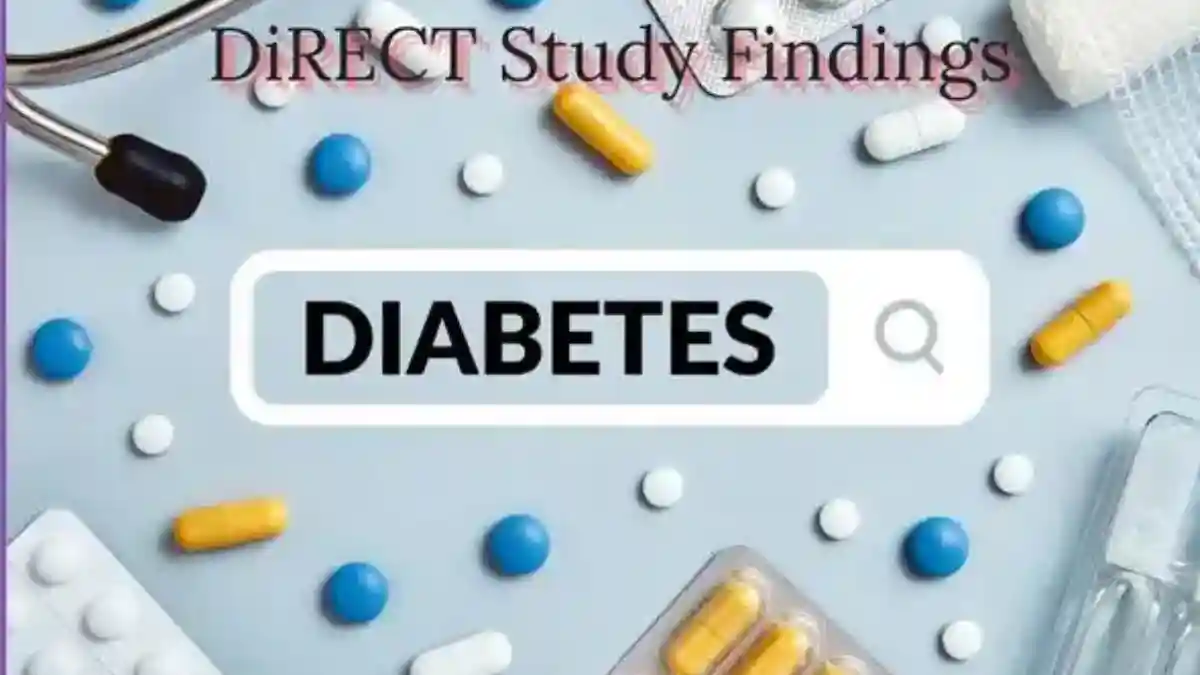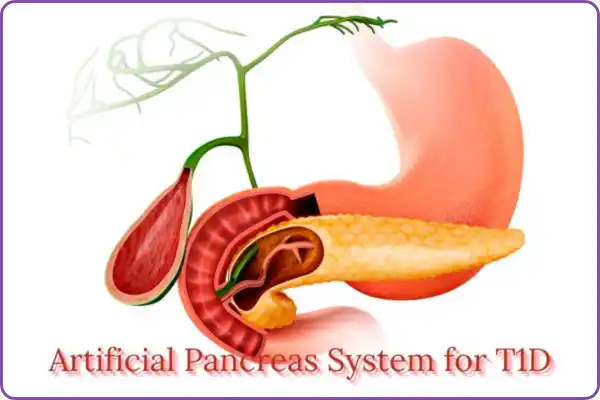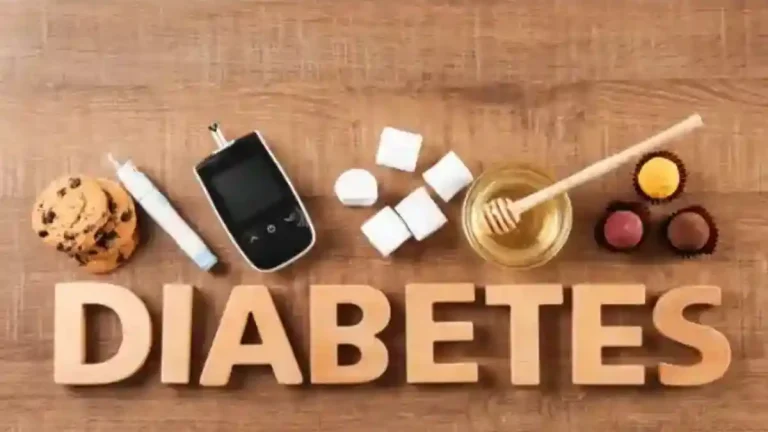DiRECT Study Findings
Can Type 2 Diabetes Be Reversed? Exploring DiRECT Study Findings, the Potential for Remission
Overview of Type 2 Diabetes (T2D)
Type 2 diabetes (T2D) is a chronic condition characterized by the body’s inability to properly regulate blood glucose levels due to insulin resistance or insufficient insulin production. This condition affects millions worldwide and is commonly associated with lifestyle factors like obesity, poor diet, and lack of physical activity. While T2DM is typically managed with medications and lifestyle changes, recent studies have opened the possibility of reversing the condition through targeted interventions.
The traditional medical view has been that Type 2 diabetes is a progressive and irreversible disease. However, new research, such as the groundbreaking Diabetes Remission Clinical Trial , has challenged this notion. DiRECT study Findings suggest that, in many cases, T2DM can be placed into remission through structured weight loss programs, offering hope to millions of patients globally.
What Type of Diabetes Can Be Reversed?
It’s essential to differentiate between the two major forms of diabetes: Type 1 and Type 2.
- Type 1 diabetes is an autoimmune disease where the body’s immune system attacks insulin-producing cells in the pancreas, leading to a lifelong need for insulin therapy. Unfortunately, there is no current cure or method to reverse Type 1 diabetes.
- Type 2 diabetes, on the other hand, is primarily driven by lifestyle factors is a diet disorder, such as poor diet, obesity, and sedentary behavior. Unlike Type 1, Type 2 diabetes has shown potential for reversal, especially in its early stages. This reversal is referred to as “remission,” where blood glucose levels return to a non-diabetic range, eliminating the need for diabetes medications.
DiRECT Study Findings: A New Path for Type 2 Diabetes Remission
The Diabetes Remission Clinical Trial (DiRECT), funded by Diabetes UK, is one of the most significant studies to explore Type 2 diabetes remission through structured weight loss. Led by Professor Roy Taylor at Newcastle University and Professor Mike Lean at the University of Glasgow, the trial focused on patients aged between 20 and 65 who had been diagnosed with Type 2 diabetes within the last six years. The study’s goal was to determine if a substantial weight loss could lead to remission of diabetes.
Key Components of the DiRECT Study:
- Participants: Over 280 patients from Scotland and England participated, all having a Body Mass Index (BMI) of 27–45, which indicated overweight or obesity—a key factor in developing Type 2 diabetes.
- Intervention: The primary intervention was the Counterweight-Plus program, which consisted of a low-calorie diet (around 850 calories per day) for a period of three to five months. This was followed by a gradual reintroduction of food and long-term weight maintenance strategies.
- DiRECT Study Findings: Initial results showed that nearly half of the participants who followed the program achieved remission from Type 2 diabetes within a year. The success rate was particularly high (around 86%) in participants who lost over 15 kg.
These findings demonstrated that significant weight loss, particularly in the early stages of T2DM, can reduce the fat levels in the liver and pancreas, which are known to impair insulin function. The improved insulin sensitivity and reduction in pancreatic fat allow many patients to regain normal blood glucose control, leading to remission.
The Science Behind Remission: Why Weight Loss Works
The underlying mechanism behind diabetes remission through weight loss involves the reduction of ectopic fat—fat stored in the liver and pancreas—which plays a crucial role in the development of insulin resistance. In patients with T2DM, excess fat in these organs interferes with insulin production and use, causing elevated blood sugar levels.
When substantial weight loss occurs:
- Liver fat decreases: This improves the liver’s ability to store glucose properly, preventing excessive glucose release into the bloodstream.
- Pancreatic fat decreases: This allows the pancreas to restore its ability to produce insulin, thereby improving blood glucose regulation.
DiRECT study findings, suggests that losing around 10-15% of body weight can lead to significant metabolic improvements. The key takeaway is that the earlier the intervention is applied after a T2DM diagnosis, the more likely remission is achievable, particularly if patients lose weight through calorie restriction and sustain it with lifestyle modifications.
New Therapies and Lifestyle Interventions for Type 2 Diabetes Remission
While the DiRECT study findings on weight loss through diet, there are other emerging therapies and approaches aimed at reversing Type 2 diabetes:
- Very Low-Calorie Diets (VLCD):

- Similar to the DiRECT study findings, very low-calorie diets (often around 800–1,200 calories per day) have been shown to lead to significant weight loss and improved insulin sensitivity. This is one of the most researched methods for diabetes remission, especially when paired with professional support to maintain weight loss.
- Bariatric Surgery:
- Surgical interventions such as gastric bypass and sleeve gastrectomy have shown the potential for inducing diabetes remission, particularly in patients with severe obesity. These surgeries alter the digestive system and lead to significant weight loss, often resulting in improved blood sugar control.
- Exercise and Physical Activity:
- Regular physical activity, particularly a combination of aerobic exercise and resistance training, has been shown to improve insulin sensitivity, aid in weight loss, and enhance glucose metabolism. Exercise alone, however, is typically more effective when paired with dietary changes for remission.
- Intermittent Fasting:
- Some studies have indicated that intermittent fasting (periods of calorie restriction followed by normal eating) can help improve insulin sensitivity and reduce blood glucose levels. While research is still ongoing, this approach is being explored as a possible method for achieving remission in T2DM patients.
- Medications for Weight Loss and Insulin Sensitivity:
- New pharmacological therapies, including GLP-1 receptor agonists (such as Semaglutide) and SGLT2 inhibitors, have shown promising results in weight loss and improving insulin sensitivity. These medications may play a supportive role in remission efforts, especially when combined with diet and exercise.
The Role of Healthcare Providers in Diabetes Remission
Achieving diabetes remission is not just about weight loss; it involves continuous lifestyle modifications and professional support. Healthcare providers play a crucial role in guiding patients through:
- Personalized weight loss plans.
- Regular monitoring of blood glucose levels.
- Education on healthy eating and physical activity.
- Mental health support to maintain long-term behavior change.
Healthcare professionals should encourage early interventions, especially when patients are newly diagnosed with Type 2 diabetes, to maximize the chances of remission.
Challenges and Barriers to Achieving Remission
While the potential for remission is exciting, it is not without challenges. Achieving and maintaining significant weight loss is difficult for many patients, especially without professional support. Additionally, not all patients with Type 2 diabetes may respond to weight loss in the same way. Factors such as the duration of diabetes, genetics, and the presence of other medical conditions can affect the likelihood of remission.
However, with proper guidance, the majority of people with Type 2 diabetes who are overweight or obese can benefit from structured weight loss programs, and many may achieve remission.
Conclusion: A New Era of Hope for Type 2 Diabetes
The DiRECT study findings offer new hope for the millions living with Type 2 diabetes. While it is not yet possible for all patients to reverse their diabetes, the potential for remission is an exciting development. Through structured weight loss programs, lifestyle interventions, and emerging therapies, many patients can reduce their reliance on medications and enjoy improved long-term health outcomes.
For those living with Type 2 diabetes, the message is clear: with the right support and interventions, diabetes remission is achievable, offering a path to better health and a life free from the constraints of this chronic condition.



